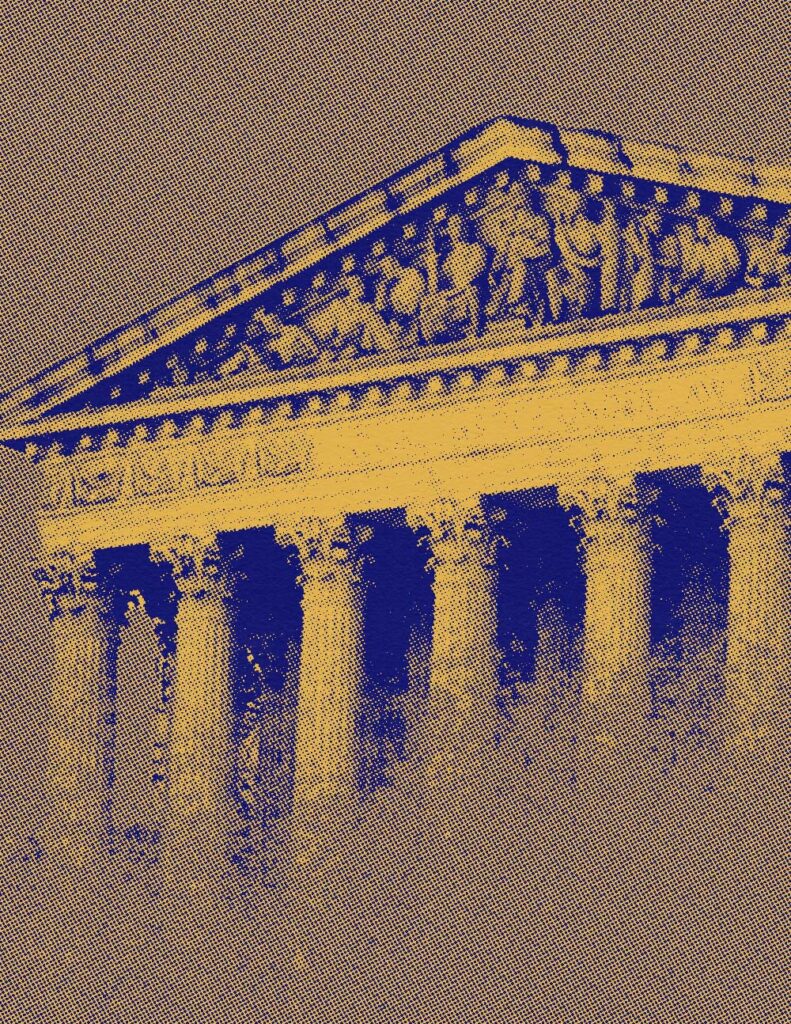
What would the founders think of direct elections for Kansas Supreme Court?
On August 4, 2026, Kansans voters will be asked if they want to amend the Kansas Constitution in order to elect Supreme Court Justices. Currently, Kansas uses what is called the merit-based system that was adopted in 1958.
Proponents of the Constitutional Amendment will claim that this is a move towards direct democracy. While direct democracy is a value we should seek to obtain in legislative and executive spheres, it is clear that this line of argument doesn’t consider our nation’s founding principles about the Judicial branch and clearly overlooks the lack of problems with the current Kansas merit-based model.
Through all the debates at the Constitutional Convention, the founders held one principal constant while considering the Judicial branch: it was essential to keep the Judicial branch independent, non-partisan, and free from short-term political influences while still providing a check on their power. The U.S. Constitution keeps Justices non-partisan by having life tenure, while checking them through impeachment and granting the legislature the power to change laws and the people the power to change the Constitution. In Kansas, we keep Justices non-partisan through a merit-based system of selection and check them through retention elections. Both of these are well balanced strategies that create a system that takes seriously the values and concerns of our founding fathers.
The Judicial branch of government has long been understood as a separate and equal branch of government. For it to remain separate and equal, it must be free from being captured by the legislative or executive branch. James Madison defined tyranny as the “accumulation of all powers, legislative, executive, and judiciary, in the same hands, whether of one, a few, or many, and whether hereditary, self-appointed, or elective” (Federalist #47). The founding fathers of this nation created a Judicial branch that could resist the influences of the legislative and executive branches. One of their tools in doing this was to have Judges appointed rather than elected. Alexander Hamilton said in Federalist #78 that “if [election of Justices were left] to the people, or to persons chosen by them for the special purpose, there would be too great a disposition to consult popularity, to justify a reliance that nothing would be consulted but the Constitution and the laws.” Elected Justices would face pressure from their donors and seek to avoid politicized attacks. In essence, they would become motivated by the same pressures that legislators and executives are beholden to. If we are to move Kansas away from the roots of our American political system, we will move closer to the tyranny that Madison warned of.
Justices thus occupy a unique role in our American system; a role that requires them to be free of the daily deluge of partisan outrages. The authority of the Courts resides in upholding the Constitution and laws of our state; it does not rest in the day-to-day partisan fights of the short term. As Thomas Jefferson put it in a letter to George Wythe in 1776, “The judges, therefore, should always be men of learning and experience in the laws, of exemplary morals, great patience, calmness, coolness and attention; their minds should not be distracted with jarring interests; they should not be dependent upon any man, or body of men. ”
Or, as James Wilson put it in 1791:
“[H]ow can a state expect to enjoy peace and order, unless the administration of justice is able and impartial? Can such an administration be expected, unless the judges can maintain dignified and independent characters? Can dignity and independence be expected from judges, who are liable to be tossed about by every veering gale of politicks, and who can be secured from destruction, only by dexterously swimming along with every successive tide of party? Is there not reason to fear, that in such a situation, the decisions of courts would cease to be the voice of law and justice, and would become the echo of faction and violence?”
In a constitutional republic, we need Justices who hold the laws and Constitution of this State and the United States as the bedrock of their decisions. Not Justices who are beholden to out-of-state donors or the outrages of the moment in an attempt to get reelected.
It has historically been the citizens of Kansas who have understood this and therefore approved a design that helps insulate Justices from the partisan battles that would inevitably chip away at that bedrock principle. In 1958, following a partisan political scandal, Kansans voted to implement the current merit-based system to provide a highest court that can focus on the discrete facts of a case and apply the law. It was also the people of the thirteen colonies who demanded independence from a Judicial system where Colonial judges were incentivized to stray from the laws as evidenced by the claims against King Geroge III in the Declaration of Independence: “He has obstructed the Administration of Justice, by refusing his Assent to Laws for establishing Judiciary powers. He has made Judges dependent on his Will alone, for the tenure of their offices, and the amount and payment of their salaries.” To ensure independence and non-partisanship in our judicial branch, “direct democracy” must be at its nadir in selecting Justices.
However, “Direct democracy” is at its zenith in the legislative branch–the people’s branch. Madison makes plain that the legislative branch is designed to be influenced by partisan considerations, “the House of Representatives is so constituted as to support in the members an habitual recollection of their dependence on the people.” Examples of systemic direct democratic improvements that would operate in the correct sphere of legislative authority would be an independent redistricting committee to end political gerrymandering; or ensuring every citizen’s right to vote; or even allowing citizen lead ballot measures. These tools would give the people of Kansas the power to put partisan pressure on their legislators, exactly where it belongs in our American system.

